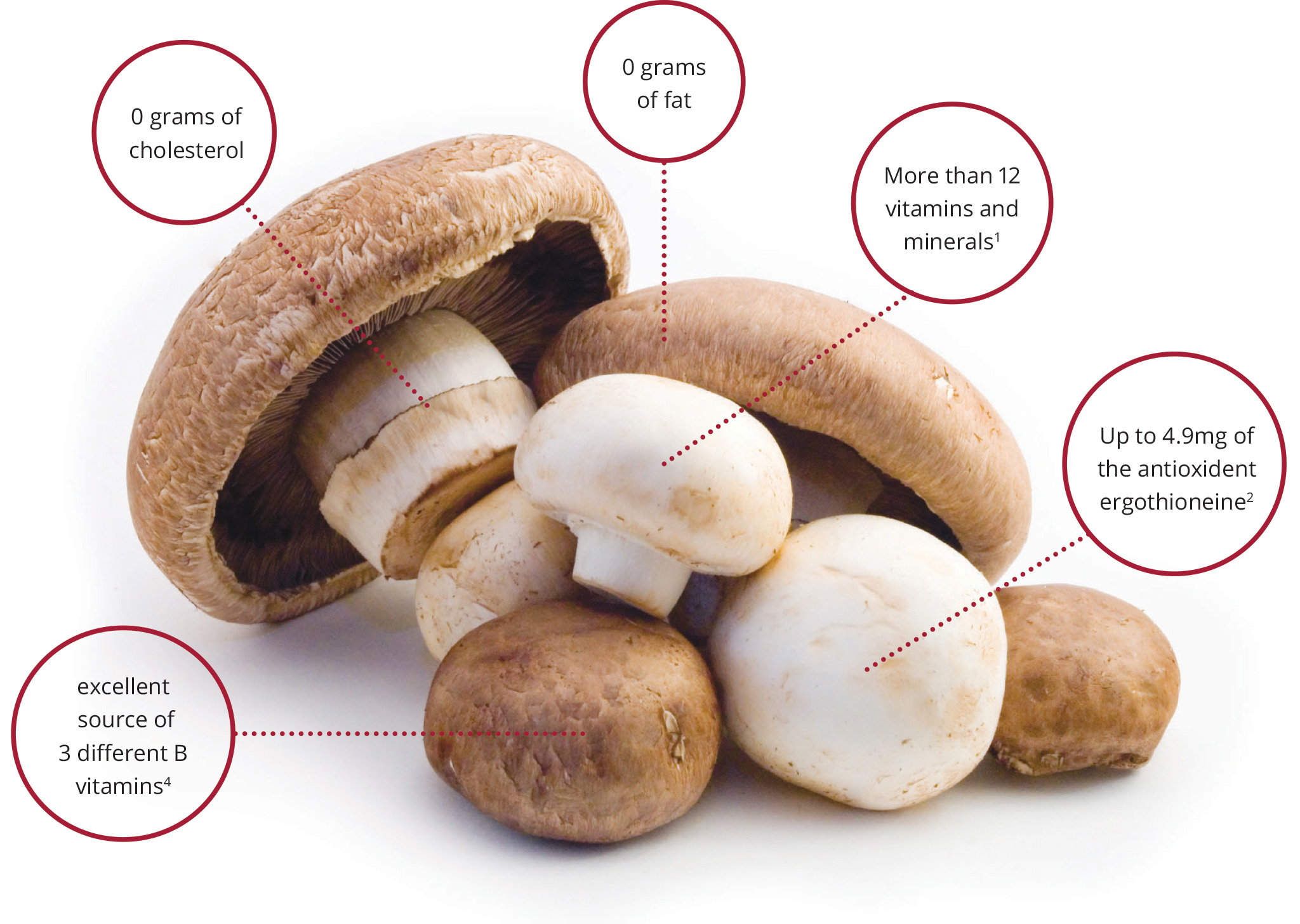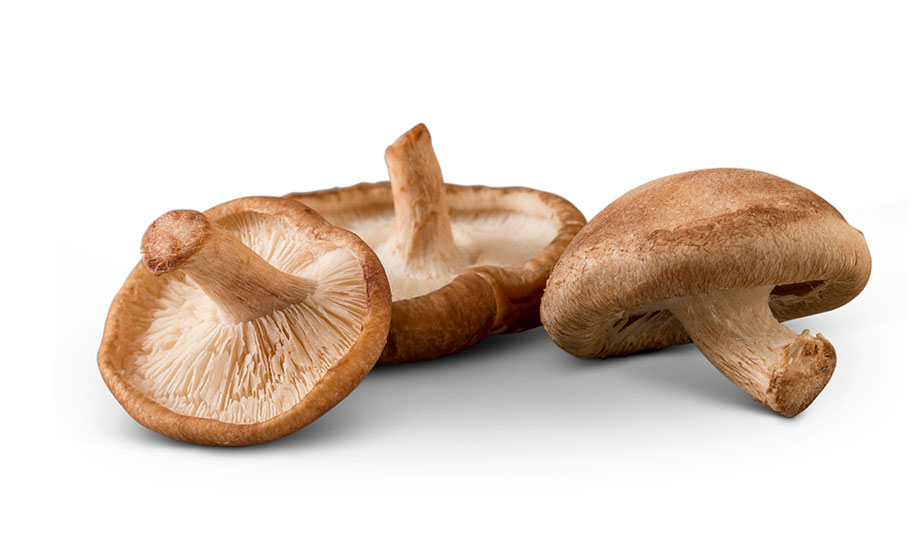Nutrition
Mushroom Nutrition
Mushrooms are a flavorful superfood that benefits virtually every diet and cuisine.
Mushrooms provide many of the same nutritional benefits as vegetables, as well as attributes commonly found in meat, beans and grains. Learn more about mushrooms, the nutritional powerhouse.

Weight Management
Did you know mushrooms are fat-free, low calorie, nutrient-dense, and low in sodium?
The Sunshine Vitamin
The produce aisle’s only natural source of Vitamin D, which can be increased by exposing mushrooms to a controlled amount of ultraviolet light.
B Vitamins
Including riboflavin and niacin, which help to provide energy by breaking down proteins, fats and carbohydrates.
Immune Function
Rich in selenium, a mineral that helps the immune system function properly.
Mushroom Benefits
- B vitamins
- B vitamins
B vitamins help to provide energy by breaking down proteins, fats and carbohydrates .[1] B vitamins also play an important role in the nervous system.
- B vitamins
- Riboflavin
- Riboflavin
Riboflavin helps with the production of hormones and also plays an important role in the nervous system. [1]
- Riboflavin
- Niacin
- Niacin
Niacin helps maintain healthy red blood cells. [1]
- Niacin
- Pantothenic acid
- Pantothenic acid
Pantothenic acid promotes healthy skin and makes sure the digestive and nervous systems function properly. [1]
- Pantothenic acid
- Selenium
- Selenium
Selenium works as an antioxidant to protect body cells from damage that might lead to heart disease, some cancers and other diseases of aging*. Also found to be important for the immune system and fertility in men. [2]
- Selenium
- Ergothioneine
- Ergothioneine
Ergothioneine is a naturally occurring antioxidant that may help protect the body’s cells. [3]
- Ergothioneine
- Copper
- Copper
Copper helps make red blood cells, which carry oxygen throughout the body. Copper also helps keep bones and nerves healthy. [1]
- Copper
- Potassium
- Potassium
Potassium aids in the maintenance of normal fluid and mineral balance, which helps control blood pressure. It also plays a role in making sure nerves and muscles, including the heart, function properly. [1]
- Potassium
- May contain beta-glucans
- May contain beta-glucans
Beta-glucans’ immunity-stimulating effects contribute to resistance against allergies and may participate in physiological processes related to the metabolism of fats and sugars in the human body. The beta-glucans contained in oyster, shiitake and split gill mushrooms are considered to be the most effective. [4]
- May contain beta-glucans

What’s a serving of mushrooms?
5 medium white button mushrooms (90 g)
4 brown or crimini mushrooms (80 g)
1 piece whole portabella mushroom (84 g)
4 whole shiitake mushrooms (76 g)
6 oyster mushrooms (90 g)
1 cup diced maitake mushrooms (70 g)
17 large enoki mushrooms (85 g)
Mushrooms and Your Health

Cancer
Scientists at City of Hope were some of the first to discover that mushrooms could suppress growth of breast cancer and prostate cancer cells in cell cultures and in animals. City of Hope researchers have conducted a small clinical trial in patients with prostate cancer.
Gluten-Free
Like all fruits and vegetables, mushrooms are naturally gluten-free, and make a delicious and nutritious addition to a gluten-free diet.


Weight Management
With a similar texture to meat, mushrooms are not only hearty, filling, and satisfying, but they are a low-calorie, fat-free and cholesterol-free food, making them a great choice for those looking to manage their weight. Preliminary research suggests increasing intake of low-calorie, high-volume foods, specifically mushrooms, in place of high-calorie, low-volume foods, like ground beef, can be an effective method for reducing daily calorie and fat intake while still feeling full and satiated.
Vitamin D
Few foods naturally contain vitamin D, but mushrooms are unique for being the only food in the produce aisle that contains vitamin D. In fact, the IOM recognizes UV-exposed mushrooms as the exception to the rule that plant foods don’t naturally contain vitamin D.


Antioxidants and Immunity
Mushrooms deliver the antioxidants selenium and ergothioneine, which help maintain a healthy immune system and protect body cells from damage that might lead to chronic diseases.
Resources and Research
The Mushroom Council has spent more than a decade investing in scientific research to better understand the nutritional benefits of mushrooms. The council has developed fact sheets that address some of today’s most relevant nutrition topics from weight management to sustainability.

